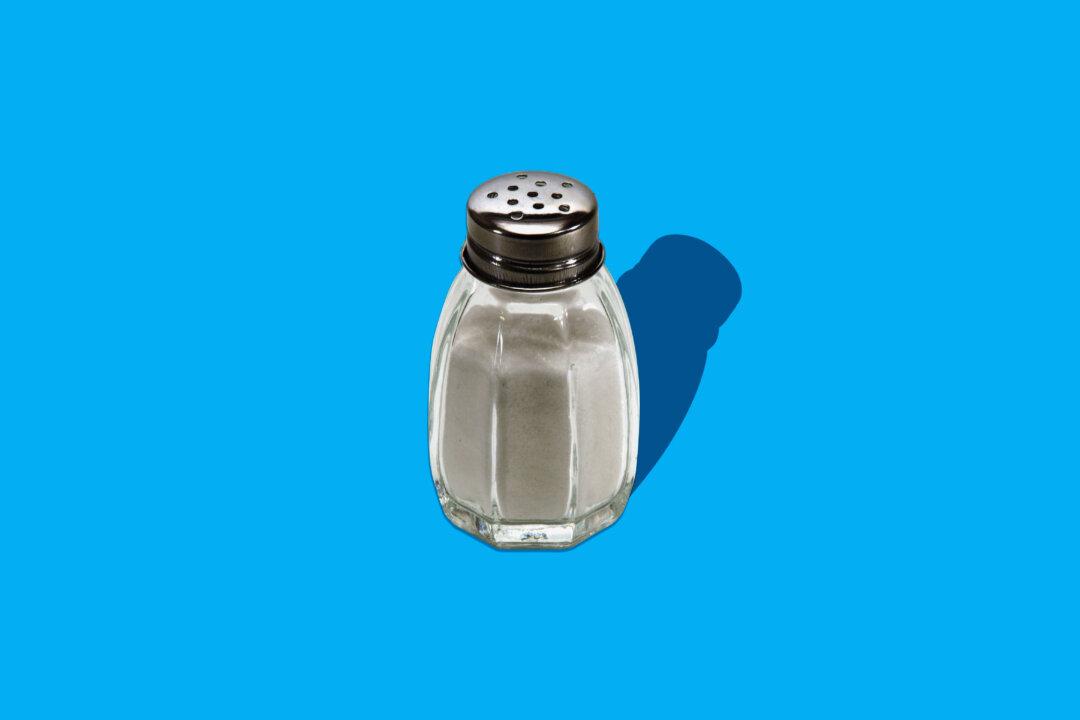Hello, and welcome to The Epoch Times Health Brief for Saturday, Oct. 5, 2024.
I’m Bill Thomas, we have several fascinating health stories to dive into today, and here’s what’s going on.
A new report says salt may play an important role in fighting cancer, a federal judge orders the Environmental Protection Agency (EPA) to investigate concerns about fluoride in our drinking water, and we’ll tell you about three of the unhealthiest foods you should avoid to maintain a healthy liver.
Also, we have new information to share with you about how to lower your cholesterol—without pharmaceuticals—and a new study says that caffeine might actually help protect you from a number of serious health problems.
Salt Could Help Fight Cancer, Studies Show
It turns out that salt might actually give a boost to the cancer-fighting cells found in our body.Scientists at the Leibniz Institute in Germany recently made an interesting discovery: sodium, a component of table salt, can boost the activity of T cells—the white blood cells that identify and destroy cancer.
They noticed that when sodium was added to T cells, they worked more efficiently at eliminating cancer cells.
Then there’s another study from a research hospital in Italy that found salt can actually “wake up” T cells, extending their lifespan and boost their antitumor response. The research, published in the Nature Immunology journal, found that mice on a high-salt diet showed less tumor growth thanks to improved T cell activity.
But hold on—don’t go reaching for the salt shaker just yet! Researchers are cautioning against simply increasing salt in our diets because even though it tastes great, salt could have a negative affect on our heart health.
So instead of recommending a high-salt diet for everyone, scientists are proposing another idea: expose T cells to higher salt levels for a short period of time before transplanting them into patients. They are hoping this could be a game-changer in cancer therapies offering a more targeted approach to boosting the immune system’s fight against cancer.
Judge Orders EPA to Address Potential Risk of Fluoride in Drinking Water
A federal judge has ordered the EPA to step up its regulations regarding fluoride levels in our drinking water. Judge Edward Chen pointed out that fluoride might harm children’s brain development, particularly their IQ.In his detailed ruling, he mentioned that recent studies from the National Toxicology Program, which coordinates toxicology testing programs across the United States, found a link between high fluoride exposure and a lower IQ in children. These studies point out that the typical fluoride levels we add to drinking water might not be as safe as once thought.
You should also know that the judge sided with those who argued that the EPA needed to consider more seriously the risk of fluoride in our water supply. He emphasized that if there’s not enough of a safety margin between the exposure levels and the potential hazards, then those chemicals pose a real health threat.
While the ruling doesn’t definitively say that fluoride causes lower IQ, it should serve as a serious warning. The EPA currently recommends a fluoride level of 0.7 milligrams per liter in drinking water, which is down from 1.2 milligrams in 2015.
In case you didn’t know, fluoride has been added to drinking water in the United States since 1945 and all in an effort to prevent cavities and promote good oral health. It’s interesting to note that according to data from the Centers for Disease Control and Prevention, about two-thirds of the U.S. population has fluoridated drinking water.
The 3 Unhealthiest Foods for Your Liver
You’ve probably heard about certain foods that can wreak havoc on your liver and now, let’s dive into three of the unhealthiest foods you should avoid to keep that organ in tip-top shape and functioning well.First on the list are fried takeout foods. They’re loaded with starchy carbs and protein, and they’re usually cooked in unhealthy vegetable oils. Even if you think you’re being smart with options like gluten-free crispy chicken and sweet potato fries, these foods can still add to your liver’s toxic overload.
The cheap vegetable oils used in many restaurants are highly refined, creating harmful fats that can increase your risk of obesity and diabetes. In fact, research shows that those who eat fast food for 20 percent or more of their meals accumulate excessive fat in their livers. It might taste great, but it’s not great for you.
Next on the list are liquid sugars. Most of us know or have heard about “high-fructose corn syrup.” This sweetener, found in drinks such as sodas, juices, mocktails, and even some coffee drinks, are the biggest source of sugar intake for many Americans. Drinking these beverages frequently can dramatically increase your risk of insulin resistance and chronic liver disease. Even worse, overconsumption of these beverages could increase your chances of developing liver cancer by as much as 85 percent.
The last things to watch out for are dressings and mayonnaise. Ultra-processed foods, especially those containing refined seed oils—for example, canola, corn, or soybean oil—are everywhere. While these oils were once thought to be healthy, they can actually harm your liver function. They contain unstable fatty acids that can produce toxins when heated.
You should know why your liver matters. Think of this organ as your body’s cleanup crew, constantly filtering out toxins from your blood. But here’s the thing: if you overload it with too many toxins, they start piling up as fat.
So, remember to stay away from your liver’s three worst enemies: fried takeout, sugary drinks, and those unhealthy seed oils.
4 Ways to Lower Cholesterol Without Statins
While these meds are pretty effective, they can come with some side effects. So, let’s check out some friendlier and more holistic ways to keep your lipid levels in check.First up, tweak your diet and embrace those plant-based goodies. A Mediterranean-style diet packed with fruits, vegetables, whole grains, and fish can work wonders. And don’t forget to munch on oats and legumes, things like beans, lentils, and split peas, which are cholesterol-fighting superfoods.
You might also want to think about adding supplements to your diet, like Omega-3 fatty acids, which are a great daily choice. Red yeast rice, a fermented type of rice used in traditional Chinese medicine, is another option that packs a punch similar to statins, but always talk to your doctor before adding something new to your health routine.
Now, let’s think about lifestyle. Regular exercise is key—it boosts the good cholesterol while lowering the bad. Maintaining a healthy weight and quitting smoking can also make a huge difference as well, and your body will thank you.
Caffeine Intake Linked to Lower Risk of Multiple Cardiometabolic Diseases
New research points out that moderate amounts of caffeine, which is around three cups of coffee a day, decreases the risk of new onset cardiometabolic issues by nearly 50 percent. This includes conditions like Type 2 diabetes, coronary heart disease, and stroke.It’s estimated that tens of millions of Americans have one or more of those chronic diseases.
What’s even more interesting is that the study scoped out data from over 170,000 people who enjoy their caffeine fix from coffee or tea and found that those who sip on less caffeine are actually more likely to develop these health problems.
But not all caffeine sources are created equal. While coffee and tea can boost your health, energy drinks often pack very high levels of caffeine and sugar, making them a poor choice.
So, if you’re looking to add caffeine to your routine, go for coffee, tea, or a small piece of dark chocolate.
And now, it looks like our time is just about up for today, so we’re gonna call it a wrap for this edition of The Epoch Times Health Brief.
And don’t forget the Health Brief Motto: We’re portable, affordable, and always on demand.
And finally, we wrap everything up with a very notable quote. This one comes to us from the famous fictional character, Sarah Brown.
In case you need some motivation right now, Brown said, “The only thing that sat its way to success was a hen.”
One more thing before we go—the health tip of the day: Sleep. It helps you look younger, feel better, and avoid making poor decisions.
For all of us here at The Epoch Times Health Brief, I’m Bill Thomas.
The Epoch Times Health Brief program was written today by Hristina Byrnes and Makai Allbert.
Thank you for making us your one-stop source for a concise, accurate, and unbiased daily synopsis of many of the health stories you need to know about.
Enjoy the remainder of your day and we'll see you right back here next time for another edition of The Epoch Times Health Brief.
For now, let’s all continue to watch out for one another and have an absolutely superb day today. Bye for now.







